Philanthropy in Democratic Societies
Philanthropy in Democratic Societies
History, Institutions, Values
Edited by Rob Reich, Chiara Cordelli, and Lucy Bernholz
The University of Chicago Press
Chicago and London
The University of Chicago Press, Chicago 60637
The University of Chicago Press, Ltd., London
2016 by The University of Chicago
All rights reserved. Published 2016.
Printed in the United States of America
25 24 23 22 21 20 19 18 17 16 1 2 3 4 5
ISBN-13: 978-0-226-33550-6 (cloth)
ISBN-13: 978-0-226-33564-3 (paper)
ISBN-13: 978-0-226-33578-0 (e-book)
DOI: 10.7208/chicago/9780226335780.001.0001
The University of Chicago Press gratefully acknowledges the support of the Stanford Center on Philanthropy and Civil Society toward the publication of this book.
Library of Congress Cataloging-in-Publication Data
Names: Reich, Rob, editor. | Cordelli, Chiara, editor. | Bernholz, Lucy, editor.
Title: Philanthropy in democratic societies : history, institutions, values / edited by Rob Reich, Chiara Cordelli, and Lucy Bernholz.
Description: Chicago ; London : University of Chicago Press, 2016. | 2016 | Includes bibliographical references and index.
Identifiers: LCCN 2016009806 | ISBN 9780226335506 (cloth : alkaline paper) | ISBN 9780226335643 (paperback : alkaline paper) | ISBN 9780226335780 (e-book)
Subjects: LCSH: Humanitarianism. | Democracy.
Classification: LCC BJ1475.3 .P45 2016 | DDC 361.7/4dc23 LC record available at http://lccn.loc.gov/2016009806

This paper meets the requirements of ANSI/NISO Z39.48-1992 (Permanence of Paper).
Contents
Philanthropy in Democratic Societies
LUCY BERNHOLZ, CHIARA CORDELLI, AND ROB REICH
Altruism and the Origins of Nonprofit Philanthropy
JONATHAN LEVY
Why Is the History of Philanthropy Not a Part of American History?
OLIVIER ZUNZ
On the Role of Foundations in Democracies
ROB REICH
Contributory or Disruptive: Do New Forms of Philanthropy Erode Democracy?
AARON HORVATH AND WALTER W. POWELL
Reconciling Corporate Social Responsibility and Profitability: Guidelines for the Conscientious Manager
PAUL BREST
When Is Philanthropy? How the Tax Codes Answer to This Question Has Given Rise to the Growth of Donor-Advised Funds and Why Its a Problem
RAY D. MADOFF
Creating Digital Civil Society: The Digital Public Library of America
LUCY BERNHOLZ
The Free-Provider Problem: Private Provision of Public Responsibilities
ERIC BEERBOHM
Philanthropy and Democratic Ideals
RYAN PEVNICK
Reparative Justice and the Moral Limits of Discretionary Philanthropy
CHIARA CORDELLI
The animating idea for this book was that philanthropy deserves far more attention than it has received in academic discourse. Our aspiration was that interdisciplinary dialogue was the route forward. We created a process of mutual learning in a group of scholars committed to explicating questions of philanthropic practice, value, and institutional structure from within their own disciplinary expertise. If things worked well, we hoped to create a book that would illuminate the connections between historical, legal, organizational, and ethical dimensions of philanthropy. Whether we succeeded is not for us to determine. Whatever our measure of success, our thanks are due to the scholars who participated in our workshops and whose chapters make up this volume.
A book like this owes much to individual experimentation, collective dialogue, and background institutional support. For the latter, we are grateful for the support from three foundations that made possible our workshops: the Bill and Melinda Gates Foundation, the Charles Stewart Mott Foundation, and the William and Flora Hewlett Foundation. We would also like to thank the exceptional people at the Stanford Center on Philanthropy and Civil Society, specifically Kim Meredith and Sam Spiewak, who contributed to each of the workshops in ways too numerous to count. We were supported by a sparkling team of undergraduate researchers, Katie Keller, Alec Hogan, and Solveij Praxis, who assisted in our workshop planning and who took detailed notes of the workshop conversations that laid the groundwork for the collectively authored section introductions. Finally, we couldnt ask for a better editor, Elizabeth Branch Dyson, at the University of Chicago Press. Her team provided fantastic support and frequent encouragement, and two anonymous reviewers gave us terrific suggestions.
Life continued during the course of the workshops, even as we squirreled ourselves away to think, debate, and write. Health crises, job changes, and the ups and downs that make life worth living were with us every step of the way. For their support from afar the editors would like to thank the families and friends of each of the authors who took precious time away from them to be with us.
Finally, some personal acknowledgments:
To Paula and Harry. Good begins with you.
Lucy Bernholz, Stanford, CA
To my parents, Anna and Franco, for their unconditional support, love, and patience, and to Jon for sharing with me the pleasures and pains of daily life.
Chiara Cordelli, Princeton, NJ
To Heather: you are the one. And to Gus and Greta, who brought joy and laughter, and a constant reminder about where the center of a good life rests.
Rob Reich, Stanford, CA
Philanthropy in Democratic Societies
Lucy Bernholz, Chiara Cordelli, and Rob Reich
Philanthropy is everywhere.
In the United States and most other countries, we see philanthropy in all areas of modern life. Individuals use private resources to support public benefits of myriad kinds, including poverty relief, education, health care, cultural and artistic expression, international aid, and associational organizations of a thousand different stripes. Sometimes we use philanthropic resources to complement and sometimes to counteract public choices about the allocation of public or taxpayer funds. Philanthropic activity comes in many forms, from large gifts from a few individuals to small donations of money and time from almost everyone, from charitable organizations to private foundations to informal giving circles. Although rates and structures of philanthropy vary by culture and place, people on every continent, from countries rich and poor, democratic and otherwise, give of themselves to benefit others. In the United States, philanthropic activity supports a kaleidoscopic nonprofit sector of well more than one million organizations that accounts for approximately 10 percent of the labor force and that touches the daily lives of most citizens. In 2013, total giving in the United States was estimated to be $330 billion, an amount larger than the size of the gross domestic product of many countries.
Philanthropy is not just a beneficent activity or a funding mechanism. It can also be a form of power. When Diane Ravitch, former assistant secretary of education, describes Bill Gates as the unelected superintendent of American schools
As with all forms of power, the practice of philanthropy triggers important questions concerning its typology, emergence, legitimacy, discretion, and distribution. What kind of powerprivate or politicalis philanthropy? How does this power interact with the economic power of market actors and the political power of states? Is the exercise of philanthropic power justifiable and compatible with the fundamental values of a liberal democratic state? What kind of discretion should powerful philanthropic actors possess? What kinds of philanthropic activity should be encouraged, merely permitted, strictly limited, or banned? How is the distribution of philanthropic power affected by and, in turn, how does it affect the distribution of economic resources and political influence across society? These are questions worthy of the attention of scholars across many disciplines.

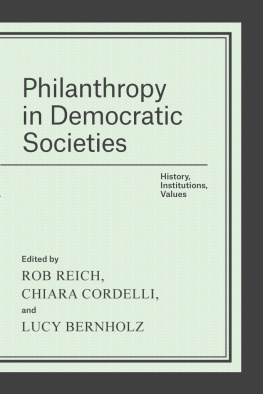
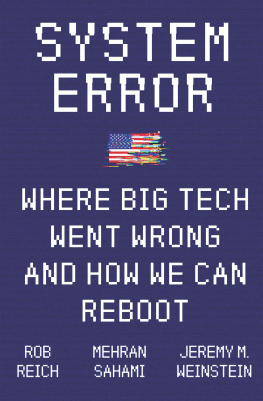

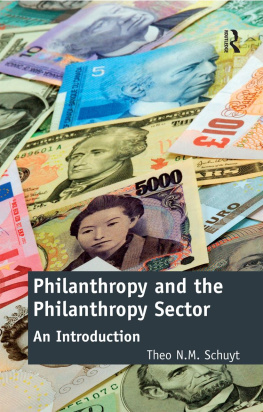

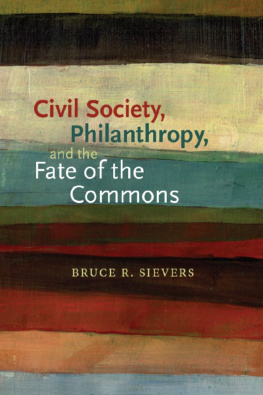

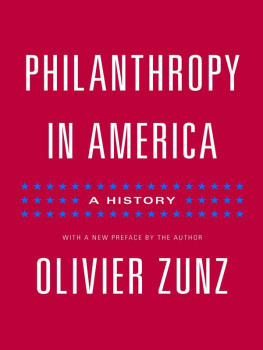
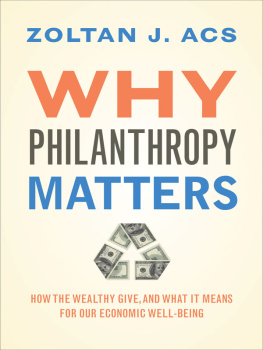
 This paper meets the requirements of ANSI/NISO Z39.48-1992 (Permanence of Paper).
This paper meets the requirements of ANSI/NISO Z39.48-1992 (Permanence of Paper).